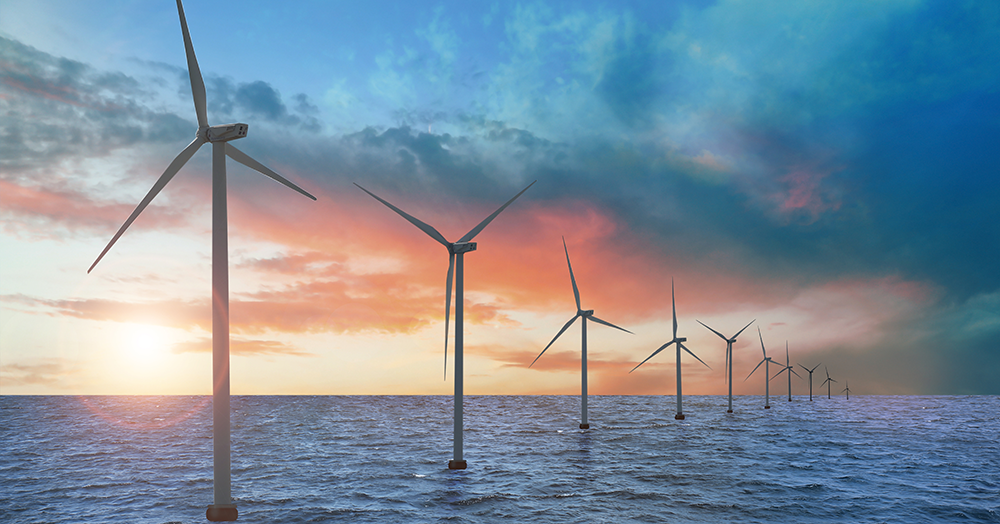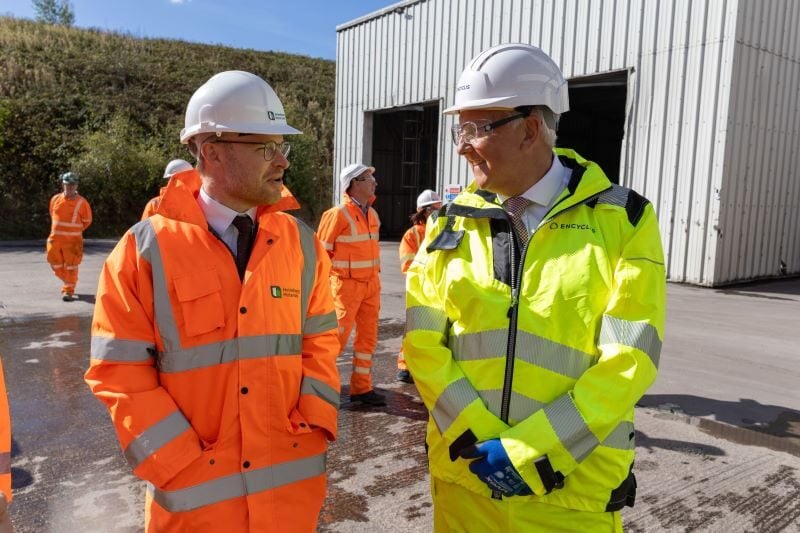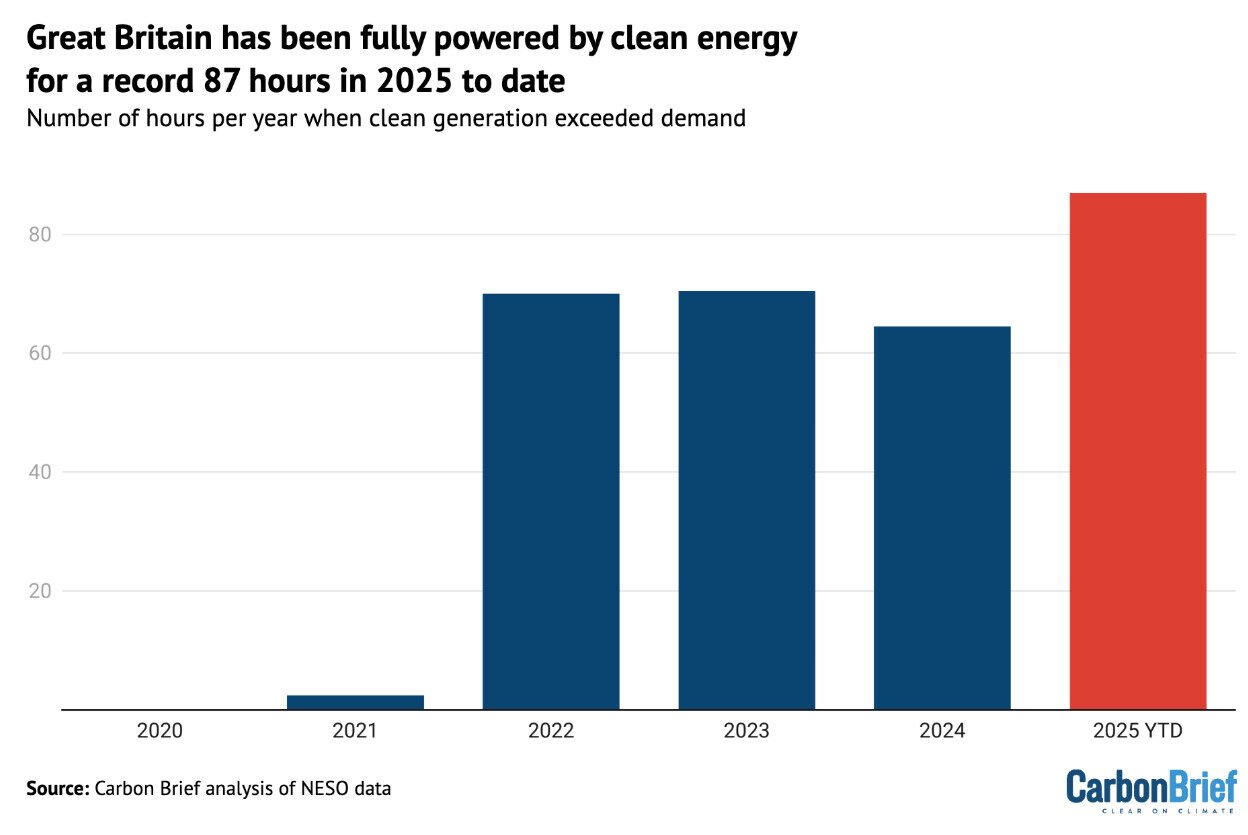NEWS & INSIGHTS | Opinion
Great Britain achieves 87 hours of 100% clean energy

This week in net zero: UK Carbon Capture Projects, GB Electricity Demand, North East Scotland Funding
Chief Technology Officer at NZTC, Luca Corradi, and his team closely monitor the global net zero landscape. They follow the trends, policies, investments and technological innovations that, together, bring the world closer to its shared climate goals. Learn more about our horizon scanning service. This week, Luca and his team look at two carbon capture projects reaching FID, new clean energy record in Great Britain, and funding to support four clean energy projects across the North East of Scotland.
Two carbon capture projects have reached final investment decision (FID) with the UK Government
Two pioneering carbon capture projects have reached final investment decision (FID) and are set to begin construction soon. These include:
- The UK’s first full-scale carbon capture-enabled cement plant, developed by Heidelberg Materials UK.
- One of the world’s first full-scale carbon capture-enabled waste-to-energy facilities developed by Encyclis
Both cement and waste-to-energy processed are highly carbon-intensive, with viable path to decarbonise without carbon capture. These projects are part of the HyNet carbon capture cluster, which received approval from the Prime Minister in April.
At Padeswood, Heidelberg Materials’ carbon capture-enabled cement plant is designed to capture around 95% of CO₂ emissions from the cement production process. The includes biogenic CO₂ that cannot be recycled, allowing the cement produced at Padeswood to be net negative.
Meanwhile, Encyclis’ carbon capture-enabled waste-to-energy facilities at Encyclis’ Protos Energy Recovery Facility near Ellesmere Port will decarbonise waste treatment by capturing around 50% biogenic CO₂. The facility will also convert non-recyclable waste into baseload electricity, heat, and reusable resources, making the process net negative overall.

Encyclis CEO Mark Burrows-Smith meets Energy Minister Michael Shanks during a visit to the North-West
Credit: Encyclis
Clean energy covers Great Britain’s electricity demand for record 87 hours in 2025
Analysis by Carbon Brief reveals that electricity demand in Great Britain has been met entirely by clean-energy sources for a record 87 hours so far in 2025. This marks a significant increase from just 2.5 hours in 2021 and 64.5 hours across all of 2024.
During these 100% clean-energy periods:
- Wind provided an average of 72% of electricity demand
- Nuclear contributed 18%
- Solar supplied 10%
- Biomass accounted for 4%
- Hydro added 1%
Although gas still generated around 13% of demand during these periods, the surplus clean energy allowed the UK to export the equivalent of 19% of demand through interconnectors with Ireland, France, Belgium, Denmark, Norway and the Netherlands.
These milestones align with the goals of Clean Power 2030, which aims for:
- 95% of electricity generation to come from low-carbon sources
- 100% of electricity demand to be met without fossil fuels across the year
So far in 2025, nuclear and renewables have supplied 66% of electricity generation and 59% of demand, with net imports covering 17%. Separately, the National Energy System Operator is targeting a fossil-free electricity grid for at least 30 minutes by the end of 2025.

Number of hours per year when clean energy exceeded demand
Credit: Carbon Brief
Scottish Government announces £8.5 million for clean energy projects in the North East
The Scottish Government has committed £8.5 million in funding to support four clean energy projects across the North East of Scotland, focusing on offshore wind infrastructure and supply chain development. The funding comes from the Just Transition Fund. The successful projects are:
- Cable Handling Facility, Maritime Developments Ltd – £2.9 million
- Orah Assembly and Deployment, Verlume Ltd – £2.5 million
- Enabling Renewable Energy Infrastructure, Fraserburgh Harbour Commissioners – £2.4 million
- Large Scale Synthetic Mooring Line Test Rig, Offshore Renewable Energy Catapult – £500,000
The announcement coincided with the start of Scotland’s Climate Week, marked by the official opening of Scotland’s largest energy transition skills hub at North East Scotland College in Aberdeen. Opened by First Minister John Swinney, the hub is a new centre of excellence designed to train young people for highly skilled roles in the growing renewables sector.
The Hub received £4.5 million from the Scottish Government’s Just Transition Fund and represents a collaboration between the Energy Transition Zone (ETZ), North East Scotland College, Shell UK and the Scottish Government.

The First Minister Opened Scotland’s Largest Energy Transition Skills Hub In Aberdeen On Monday
Credit: STV
Subscribe for the latest updates





